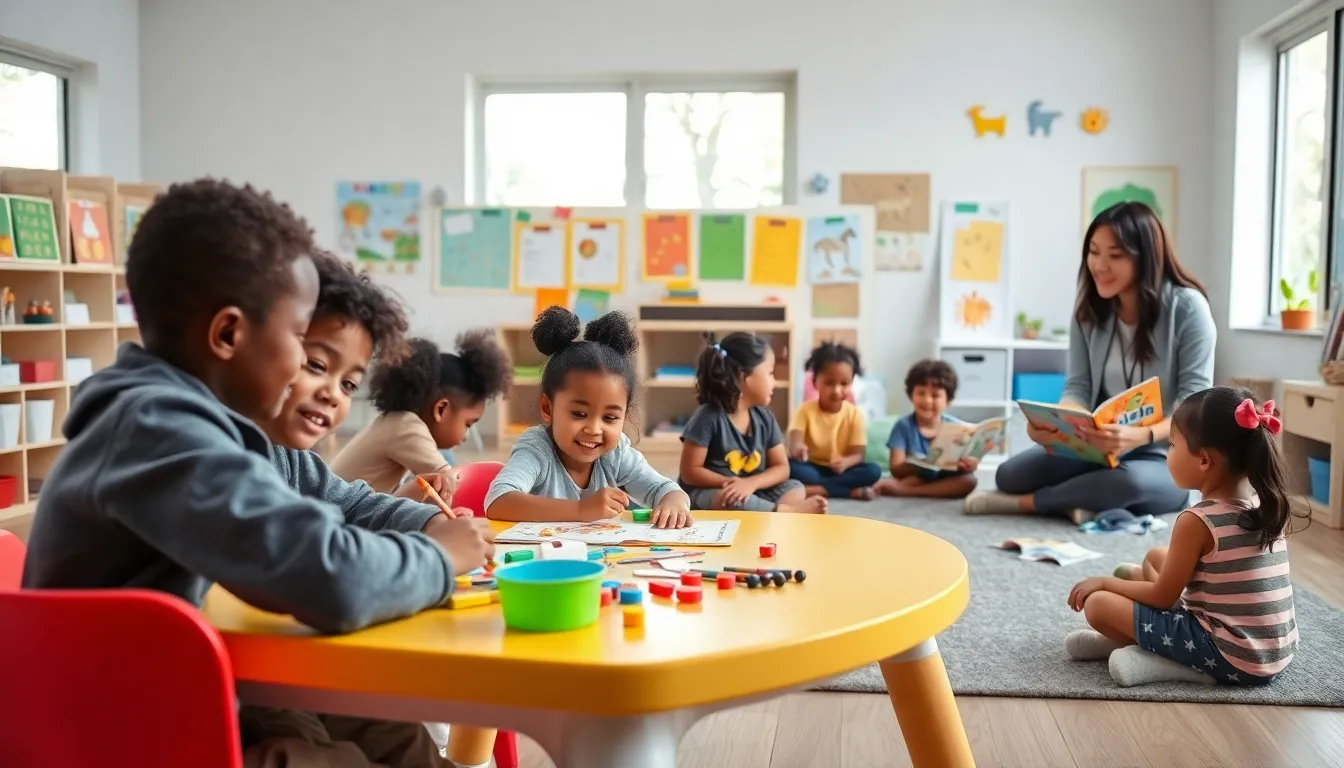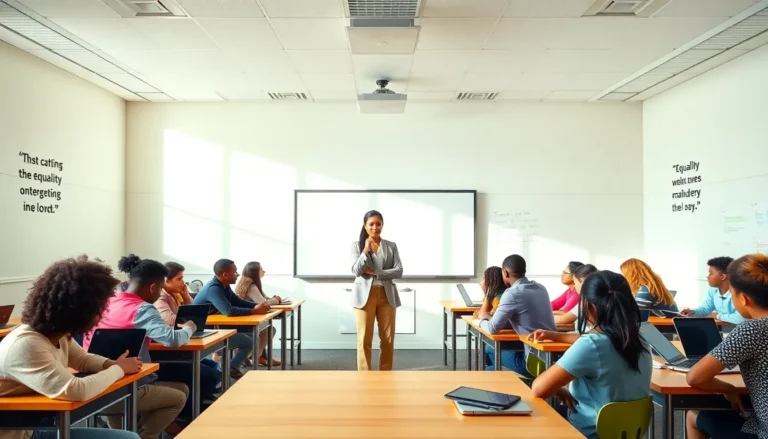When it comes to shaping the little minds of tomorrow, early childhood education is like the golden key that unlocks a treasure trove of potential. In the 15th edition of “Early Childhood Education Today,” this topic is tackled with renewed vigor and insight, blending both tradition and modern thinking into a guide that feels as approachable as it is informative. Imagine having a backstage pass to the evolution of educational practices while sipping on your favorite coffee. Sounds appealing, right? With a dash of humor and a sprinkle of knowledge, this article dives deep into the crucial aspects of early childhood education today, ensuring that anyone, whether an educator or a curious parent, gets to unlock the secrets of successful learning at an early age.
Table of Contents
ToggleOverview of Early Childhood Education

Importance of Early Childhood Education
In the grand narrative of education, early childhood education stands out as a cornerstone. Research consistently shows that children who engage in quality early learning experiences are more likely to succeed academically and socially. It’s like planting a garden: the care given in the early stages determines the vibrance of the flowers that bloom later. Investing in early education not only benefits the child but society as a whole, leading to better outcomes in areas like mental health and economic productivity.
Historical Context and Evolution
The journey of early childhood education is rich and layered, evolving from informal playgroups to structured curriculums. It has adapted to societal changes, incorporating diverse philosophies and pedagogy. The 15th edition reflects this evolution, contextualizing modern practices within a historical framework. Understanding this evolution is essential as it highlights how our educational philosophies have shaped current methodologies, allowing educators to draw from the past while crafting a brighter future.
Key Principles of Developmentally Appropriate Practice
Core Components of the 15th Edition
The 15th edition proudly builds on the principles of developmentally appropriate practice (DAP), which emphasizes teaching that respects the age, individual, and cultural background of each child. These core components include creating a safe and inclusive environment, facilitating active exploration, and fostering relationships based on respect. This edition dives deeper into strategies that reflect these principles, guiding educators in adapting to the dynamic classroom landscape of today.
New Research and Trends in Early Childhood Education
Trends in early childhood education are shaped by ongoing research about child development and learning. The latest edition integrates findings related to technology in the classroom, emphasizing that while screens can have a role, it’s vital that children engage in sensory-rich experiences. Understanding and applying these new research insights ensures that educators are equipped with tools that enhance learning while being mindful of developmental milestones.
Diverse Learning Environments
The Role of Play in Learning
Play is often dubbed the ‘work of children,’ and for good reason. It serves as a primary method through which young children explore, experiment, and understand their world. The 15th edition underscores different modalities of play, free play, guided play, and constructive play, each offering unique benefits to young learners. Through play, children develop critical thinking, creativity, and social skills, all within an environment that feels natural and engaging.
Inclusion and Equity in Early Childhood Education
Strategies for Engaging Families and Communities
Inclusion and equity are foundational tenets of effective early childhood education practices. Engaging families is paramount as they are invaluable allies in a child’s educational journey. The 15th edition suggests various strategies, such as regular communication, parent workshops, and collaborative community projects, to foster stronger partnerships. By bridging connections between home and school, educators can create a more inclusive environment that celebrates diversity.
Assessment and Evaluation Methods in Early Childhood Education
Future Directions in Early Childhood Education
Assessing young children is a delicate art. Traditional measures often fall short in encapsulating a child’s abilities and potential. The 15th edition promotes holistic evaluation methods that encompass social, emotional, and cognitive development. It also encourages educators to adopt ongoing formative assessments that guide teaching practices, paving the way for continuous improvement in educational strategies.



